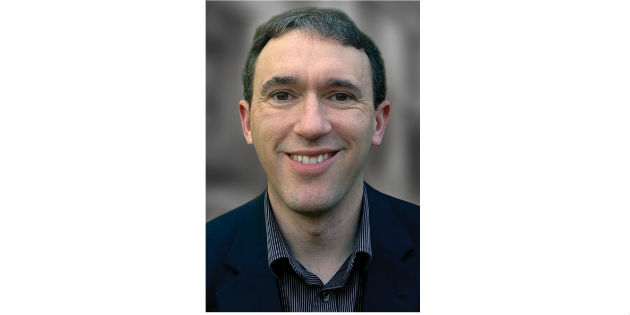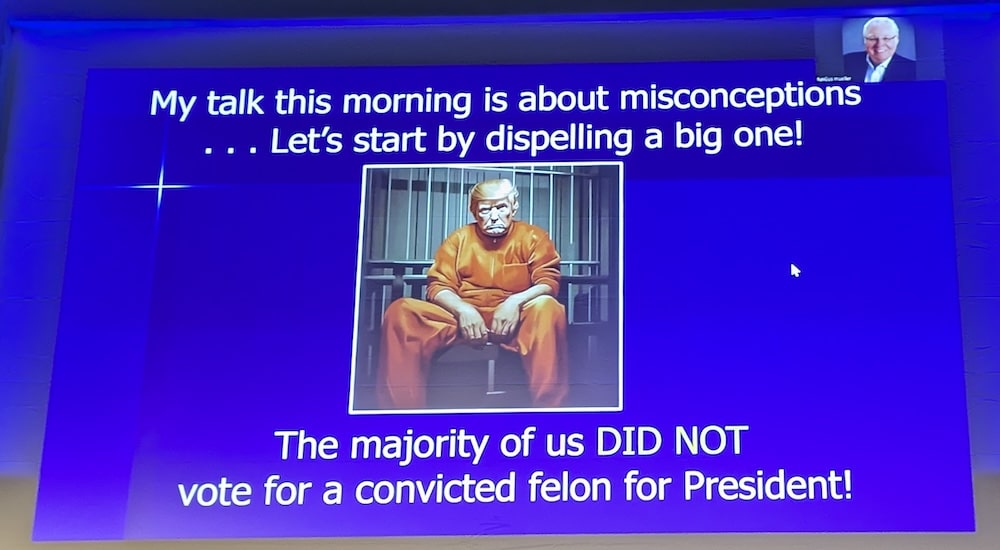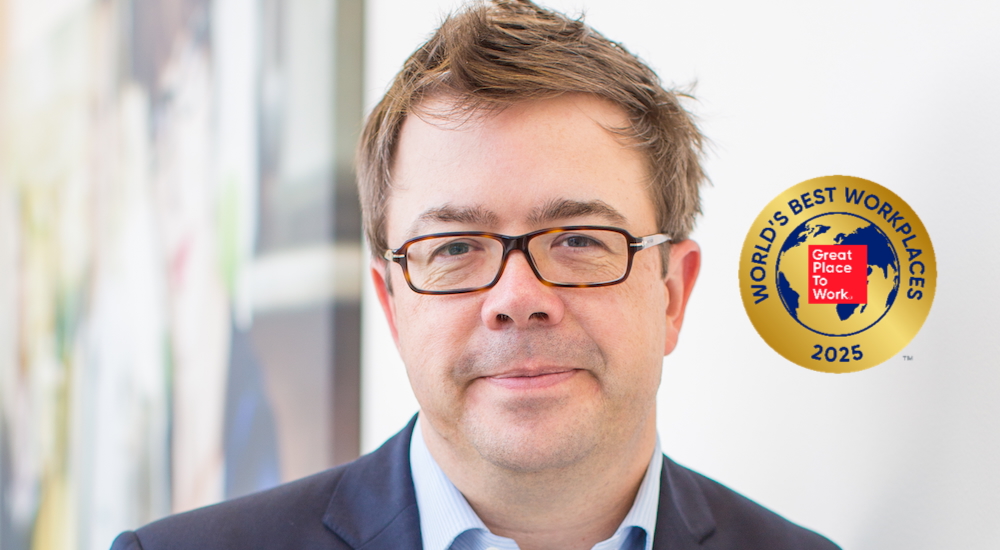Do you repulse your clients?
AudiologyNOW! 2017
The hearing industry has much work todo to help those with hearing difficultiesovercome the negative images,overcome the stigma, and overcomethe barriers to seeking help. But what arewe actually doing as a profession?

One man is on a mission to changepeople’s attitudes, language andbehaviour. Curtis Alcock, Director ofAudify has devoted thousands of hoursto thinking, researching, writing andpresenting with the aim of encouraginghearing care professionals to worktogether to create a new social norm inhearing care.
Why do more people avoidhearing care than approachit? This is just one of manyquestions that set Curtis Alcock,independent hearing carebusiness owner from the SouthWest of England, on a mission to discover why threequarters of people with hearing problems do not seekhelp from professionals.
“All of us that work within the hearing care professionknow first-hand how life-changing our work is. Yetdespite our best efforts, there are still more peopleout there who avoid hearing care than approach it.Why? It seems that the attitudes of society towardstheir hearing having failed to keep pace with ourown progress, so even after all these years we findourselves bemoaning how long people wait beforetaking action, not to mention “the denial” and otherbarriers we encounter when they finally attend their firstappointment.”
In his presentation at the American Academy ofAudiology conference − AudiologyNOW! 2017 Alcock approached the question fromthe perspective of the social sciences, bylooking at how attitudes are formed andshaped. Hearing care professionals willdiscover that much of what they do andsay as a profession is, at best, maintainingmany of society’s outdated attitudes – andat worst, may actually be creating some ofthe very barriers that make their jobs harder.Along the way they will learn the sciencebehind what repulses people – and moreimportantly, the simple changes each canmake to avoid doing so.
A thought-leader
Audio Infos asked Alcock how anindependent hearing care professional fromDevon started on a journey that has seenhim present his ideas and research not justin the UK at British Society of Hearing AidAudiology congresses and British Academyof Audiology meetings, but at events inAustralia, Canada, the United States, andEurope, including at a European Unionparliament session.
Several things happened in a short period oftime for Alcock that prompted his work: anarguing couple in a hearing appointment,trying to ‘debunk’ myths at local communitygroup talks and the emergence of severallarge retail companies in the UK. “I beganthinking more and more about all ourmarketing messages, and questioning therole I might be playing in reinforcing allthose negative attitudes that were stoppingpeople taking action.
“Historically the percentage of people whohave hearing problems, and subsequentlyget hearing aids had remained fairlystatic (e.g. 1 in 4 in the US), and I knewpeople take many years to reach the stage of seekingprofessional help. So here we had a situation where thecake was not growing any bigger, but more providerswere coming along and wanting a slice of it. It wasunsustainable. The only way there would be enoughto go round would be to grow the market, somethinghistorically we’d been unable to do.”
Curtis looked for answers in published papers, “All Icould find was research that told me what I alreadyknew, that people’s attitudes to hearing care weregenerally negatives! That wasn’t much help. Whatthe literature was missing was an understanding ofhow those attitudes developed in the first place. Andmore importantly, what we can do to change them – ifindeed we could?”
Alcock embarked on a personal research projectto understand how attitudes work and the factorsresponsible for driving social change. He had to lookoutside audiology, to the fields of social psychology,behavioural economics and psycholinguistics. “WhatI discovered, there, was a huge amount of directlyapplicable data, but from what I could tell, it had neverbeen systematically applied to hearing care. Moreover,we often appeared to be doing the exact opposite ofwhat we should be doing to help change society’sattitudes!”
An experimenter
Applying what he learnt from his studies, Alcockbegan experimenting with the marketing messages in his hearing practice and the language he used inhearing assessments. “I started encountering less andless resistance during appointments, and we startedgetting people asking for hearing assessments at anearlier age, and wanting to try hearing technology. Evenmore surprising, new clients/patients were repeatingback to me the messages I had ‘put out there’ throughour marketing. It was a real eye-opener.”
Following his initial research and seeing the resultshe could achieve from putting his ideas into practice,Curtis decided to start Audira, to make his findingsavailable to others. “It’s since evolved from there intosomething of a grassroots movement of people from allover the world. I even know of people using my materialto train others.”
Alcock is keen for hearing care professionals (andthose who use their services) to change the way theythink about hearing care. “We’ve been so focused on“impairment”, heralding all its negatives, that it’s nowonder we deter people!”
Curtis wants people to focus on ‘hearing’ as that iswhat hearing care is really about. “It’s that obvious. Whyelse do we fit hearing technology? It’s so that peoplecan hear as well as they possibly can. Why? Becausehearing connects us. It connects our brains to the worldaround us. It connects us to the minds and hearts ofothers, through language and music. It connects us tothis exact moment and all the opportunities that being“in the right place at the right time” brings us.”
Alcock believes that is a much more attractive messageand it immediately finds resonances with the public.“Who wouldn’t want to keep their connection strongand constant? This means hearing care is aboutempowering individuals and society to reach andmaintain their potential through those connections.When we see it like that, our profession becomes oneof the most important and relevant in society.”
An influencer
Curtis Alcock presented an invited lecture atAudiologyNOW! entitled, ‘The Science of BeingRepulsive (and How to Avoid It)’, immediately after theGeneral Assembly on Thursday, April 6, in the mainlecture theatre. For those unable to attend the event, hehas given Audio Infos some practical tips for hearingcare professionals to stop repulsing their patients!
“Every time we’re about to talk about “hearing loss”or “hearing impairment”, we can try to reword it in terms of the patient’s hearing. For example, insteadof saying “You have a moderate hearing loss,” explainthat “these speech sounds are currently falling outsideyour hearing range.” That immediately gets someonethinking about how they can bring them back inside,and get back to where they want to be, rather thantrying to get them to acknowledge a “loss”.
“Secondly, we must stop talking about “hearing tests”being to “detect if you have a hearing loss”. Nobodywants to find out they’re imperfect. Imagine if you sawa test that said, “Come and find out if you have badbreath.” Would that be an attractive message? Instead,talk about getting a “baseline for your hearing” or a“routine hearing check, just like eyes and teeth”. Inother words, make it about “keeping your hearing at itsbest”, rather than screening for a condition.
“Thirdly, show people of all ages enjoying their hearing(20s, 30s, 40s, 50s…). Don’t make it about retirement or growing old. Even older people are prejudiced againstimages of “old people” and will naturally avoid placesthat stereotype them. So don’t do it! It’s that simple.”
An innovator
For innovation to happen, Alcock thinks we need morepeople in the profession to put themselves in the shoesof the patient/client and get frustrated on their behalf.“The irony is that we’re often hesitant about tryingsomething different, including what we’ve been sayingabout attitudes. We’re so afraid we’ll upset what wealready have, that we end up superstitiously clingingto our outdated approaches like a luck charm, thenwonder why society’s attitudes remain so negative!
“I’ve also known people who say that whilst things arestill working for them, they’ll stick with what they’vealways done. They then proceed to complain aboutcommoditisation, PSAPs and the Internet! It’simportant we realise, the two things are notunconnected. We have to be constantly disruptingourselves. Otherwise we risk someone coming alongand doing it to us. And by then, it’s too late.”
Curtis Alcock began his career in design and marketingbefore making the transition into hearing care15 years ago. He is now a full-time hearingcare professional and director of Audify®,an independent hearing centre in the UnitedKingdom. Alcock is the founder of Audira, a thinktank for hearing, the main aim of which is tocreate a new social norm for hearing care.He has lectured internationally in Europe, theUnited States, Canada, and Australia on how tochange society’s attitudes to hearing care andhas written extensively on the future of hearingcare and the changing role of the hearing careprofessional in a world where things are becomeincreasingly computerised and commoditised.
His articles on encouraging earlier adoption ofhearing technology have featured in professionaljournals in the United States, Canada, andthe United Kingdom, and has twice made thefront cover of The Hearing Review. In 2013, hewon the Ida Institute›s award for best publicawareness campaign, which has since been used inthe United States and across Europe translatedinto 12 different languages.
Read and share a summarized version of this content on our special AudiologyNOW! flipbook:
The complete version of this article was published on issue #111 of Audio Infos United Kingdom. Get to know all our international magazines!
Photo: © Audira.
 Sign in
Sign in

